#trucking union
Text
ST. LOUIS — The Teamsters Union made an abrupt announcement Monday morning: It had received notice that the Nashville, Tennessee-based trucking giant Yellow Corp. was closing operations and planned to file for bankruptcy.
The expected closure leaves tens of thousands of jobs in the balance, and the impact on already delicate supply chains won’t be known for weeks to come. At the company’s sprawling truck yard in the Kosciusko neighborhood of St. Louis on Monday, signs were posted noting that “all company operations have ceased” as of Sunday. Trailers were positioned to block the entrances to the yard.
“Today’s news is unfortunate but not surprising,” Teamsters General President Sean M. O’Brien said in a statement. “Yellow has historically proven that it could not manage itself despite billions of dollars in worker concessions and hundreds of millions in bailout funding from the federal government. This is a sad day for workers and the American freight industry.”
71 notes
·
View notes
Text
I know my experience is not universal, but I biked 5+ miles to do my errands today and I genuinely think we'd be much happier as a human collective if we increased residential density and switched to largely alternative modes of transportation.
#I don't know /how/ you'd do it exactly but this is my vision:#all cars are kept outside a certain perimeter. you can own a car and rent your outside-the-city parking spot;#or you can just reserve/rent a communally owned car when you need one#trucks and deliveries can cross the perimeter on a job but after the work is finished they must be returned to the exterior#inside the city perimeter you can: walk or run; bike or scooter or skateboard#or you can take public transit! there are many more buses and they can move much more freely in a car-less environment#there is also the option of cabs but - and this is key - the cabbies are unionized and the service is public#like the trains and buses.#there is no privately-controlled transit in the city. it belongs to everyone.#and because the lines of parked cars disappear from the streets; they are much better utilized#more kids play in the street. more block parties. more street fairs.#take back the space!!!#anyway this is my vision.#celestial emporium of benevolent knowledge
306 notes
·
View notes
Text
“i know the actors strike is so inconvenient and difficult and sad for you but please support it” I’ve lived through complete public transportation strikes and most of the population supported them because we knew that if we wanted better public transportation those workers were gonna be the ones to do it even if the entire city is chaos today, y’all can watch an old movie
#not to mention the truck drivers strike that closed off higways#the post office#the banks#like the US is so devoid of unionized categories ppl don’t realize how common it is for super essential services to just. stop#ppl gotta do what they gotta do yk sometimes there r no banks or buses that’s life
223 notes
·
View notes
Photo
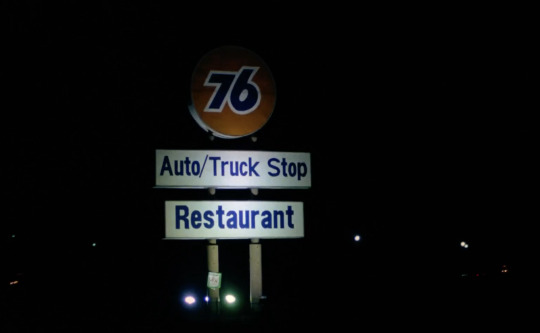
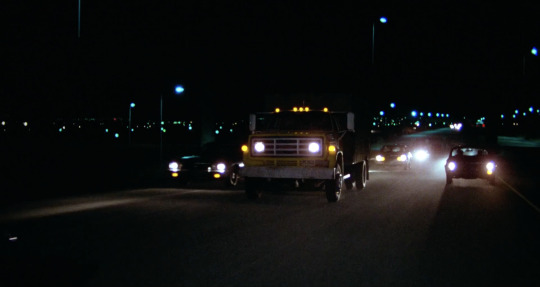

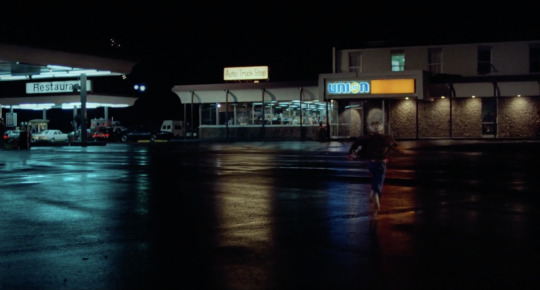
truck stops as you remember them
178 notes
·
View notes
Text
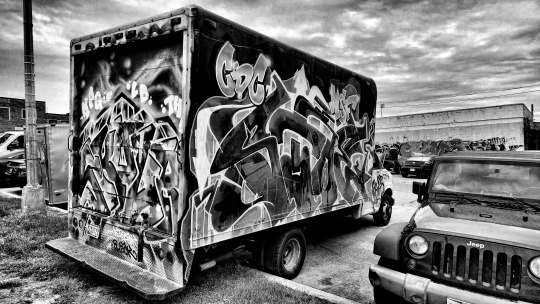
#photography#street photography#black and white photography#photographer on tumblr#photographers on tumblr#photography on tumblr#original photography on tumblr#washington dc#graffiti#graffittiart#graffti#urban life#urban#urban photography#city life#city#city photography#citylife#cityphotography#cityscapes#cityscape#bw photography#bwphotography#bw#bw edit#black and white#monochrome#union market#DC#truck
11 notes
·
View notes
Text
You think someone shouldn’t earn a living wage because of their job? You think a job isn’t a “real” job just because its skill set doesn’t require schooling to gain? Fine, you do it. You go wait tables. You go flip burgers. You go deliver pizza. You go drive a semi truck for 12 hours a day. You go clean up shit and piss and vomit every day. You deal with the stares, the cries that you aren’t doing hard work, that your job somehow makes you worth less, that your life is worth less. You go do those jobs, and you do them for nothing, you break your back for free doing jobs other people need you to do, and then you come back here and tell me that the people who do those jobs don’t deserve a paycheck they can actually live on. You don’t get to bitch about people wanting more pay unless you’re willing to do what they do for the same or less. You don’t get to tell people they aren’t working a “real” job unless you’d be willing to do it for free. You don’t get to treat people like they’re lesser than you unless you would want people to treat you like that while you worked their job.
#capitalism#workers#anti capitalism#socialism#unions#unionize#America#service#janitors#janitorial services#cleaning#trucking#truckinglife#truckingindustry#otr trucking#waiter#waitress#waiting tables#shit boomers say#seriously don’t spout this shit unless you’re willing to do the work for free#anything else is hypocritical
6 notes
·
View notes
Text
Mack workers join UAW strike

View On WordPress
17 notes
·
View notes
Text

Marseille, France
A protester rides on a CGT union truck during a rally against the government’s pension changes
Photograph: Guillaume Horcajuelo/EPA
2 notes
·
View notes
Text
-suplexes my first year of apprentice school into the fucking dumpster- THE BITCH IS FREEEEE!!!
#until September#my shit ass teacher can suck a truck of dicks#my mental health can recover somewhat#i will sleep so fucking much#YEAR ONE IN THE BOOKS!#union nonsense
8 notes
·
View notes
Text
Everybody's going on strike and my god it is glorious.
6 notes
·
View notes
Text
Oct 2 (Reuters) - About 4,000 workers represented by the United Auto Workers (UAW) reached an agreement with Volvo Group-owned Mack Trucks just before midnight Eastern Standard Time (0400 GMT) on Sunday, the union and the company said.
The temporary agreement must still be ratified by the UAW.
"The terms of this tentative agreement would deliver significantly increased wages and continue first-class benefits for Mack employees and their families," Mack President Stephen Roy said in a statement.
The union announced the deal on social media platform X, formerly known as Twitter. About 98% of the truck company's workers had authorized a strike last month, according to the UAW.
The UAW is currently in the third week of an ongoing strike against the Detroit 3 automakers, General Motors (GM.N), Ford and Chrysler parent Stellantis (STLAM.MI).
Should Mack workers have gone on strike, it could have strained the UAW's limited strike fund.
#news#uaw#united auto workers#uaw strike#mack trucks#united auto workers strike#union strong#hot strike summer#hot labor summer#hot strike fall#hot labor fall
46 notes
·
View notes
Text
What Happened When a Fearless Group of Mississippi Sharecroppers Founded Their Own City
Strike City was born after one small community left the plantation to live on their own terms
— September 11, 2023 | NOVA—BPS
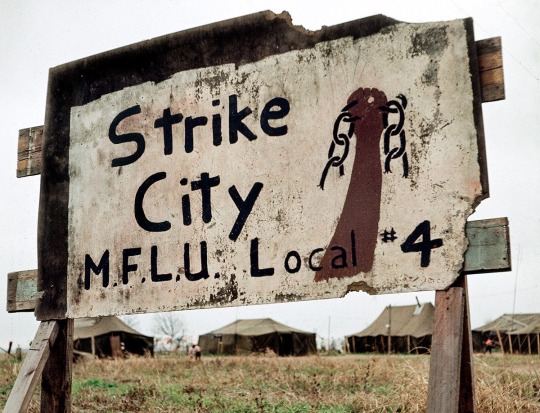
A tin sign demarcated the boundary of Strike City just outside Leland, Mississippi. Photo by Charlie Steiner
In 1965 in the Mississippi Delta, things were not all that different than they had been 100 years earlier. Cotton was still King—and somebody needed to pick it. After the abolition of slavery, much of the labor for the region’s cotton economy was provided by Black sharecroppers, who were not technically enslaved, but operated in much the same way: working the fields of white plantation owners for essentially no profit. To make matters worse, by 1965, mechanized agriculture began to push sharecroppers out of what little employment they had. Many in the Delta had reached their breaking point.
In April of that year, following months of organizing, 45 local farm workers founded the Mississippi Freedom Labor Union. The MFLU’s platform included demands for a minimum wage, eight-hour workdays, medical coverage and an end to plantation work for children under the age of 16, whose educations were severely compromised by the sharecropping system. Within weeks of its founding, strikes under the MFLU banner began to spread across the Delta.
Five miles outside the small town of Leland, Mississippi, a group of Black Tenant Farmers led by John Henry Sylvester voted to go on strike. Sylvester, a tractor driver and mechanic at the A.L. Andrews Plantation, wanted fair treatment and prospects for a better future for his family. “I don’t want my children to grow up dumb like I did,” he told a reporter, with characteristic humility. In fact it was Sylvester’s organizational prowess and vision that gave the strikers direction and resolve. They would need both. The Andrews workers were immediately evicted from their homes. Undeterred, they moved their families to a local building owned by a Baptist Educational Association, but were eventually evicted there as well.
After two months of striking, and now facing homelessness for a second time, the strikers made a bold move. With just 13 donated tents, the strikers bought five acres of land from a local Black Farmer and decided that they would remain there, on strike, for as long as it took. Strike City was born. Frank Smith was a Student Nonviolent Coordinating Committee worker when he went to live with the strikers just outside Leland. “They wanted to stay within eyesight of the plantation,” said Smith, now Executive Director of the African American Civil War Memorial and Museum in Washington, D.C. “They were not scared.”
Life in Strike City was difficult. Not only did the strikers have to deal with one of Missississippi’s coldest winters in history, they also had to endure the periodic gunshots fired by white agitators over their tents at night. Yet the strikers were determined. “We ain’t going out of the state of Mississippi. We gonna stay right here, fighting for what is ours,” one of them told a documentary film team, who captured the strikers’ daily experience in a short film called “Strike City.” “We decided we wouldn’t run,” another assented. “If we run now, we always will be running.”
But the strikers knew that if their city was going to survive, they would need more resources. In an effort to secure federal grants from the federal government’s Office of Economic Opportunity, the strikers, led by Sylvester and Smith, journeyed all the way to Washington D.C. “We’re here because Washington seems to run on a different schedule,” Smith told congressmen, stressing the urgency of the situation and the group’s needs for funds. “We have to get started right away. When you live in a tent and people shoot at you at night and your kids can’t take a bath and your wife has no privacy, a month can be a long time, even a day…Kids can’t grow up in Strike City and have any kind of a chance.” In a symbolic demonstration of their plight, the strikers set up a row of tents across the street from the White House.
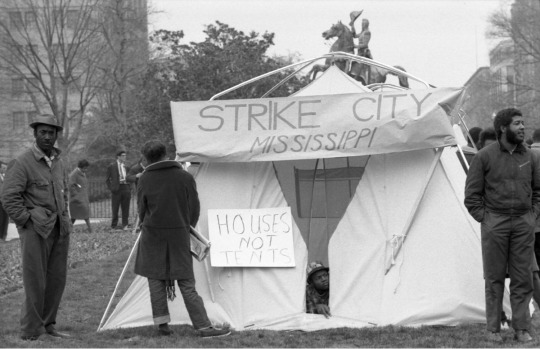
John Henry Sylvester, left, stands outside one of the tents strikers erected in Washington, D.C. in April 1966. Photo by Rowland Sherman
“It was a good, dramatic, in-your-face presentation,” Smith told American Experience, nearly 60 years after the strikers camped out. “It didn’t do much to shake anything out of the Congress of the United States or the President and his Cabinet. But it gave us a feeling that we’d done something to help ourselves.” The protestors returned home empty-handed. Nevertheless, the residents of Strike City had secured enough funds from a Chicago-based organization to begin the construction of permanent brick homes; and to provide local Black children with a literacy program, which was held in a wood-and-cinder-block community center they erected.
The long-term sustainability of Strike City, however, depended on the creation of a self-sufficient economy. Early on, Strike City residents had earned money by handcrafting nativity scenes, but this proved inadequate. Soon, Strike City residents were planning on constructing a brick factory that would provide employment and building material for the settlement’s expansion. But the $25,000 price tag of the project proved to be too much, and with no employment, many strikers began to drift away. Strike City never recovered.
Still, its direct impact was apparent when, in 1965, Mississippi schools reluctantly complied with the 1964 Civil Rights Act by offering a freedom-of-choice period in which children were purportedly allowed to register at any school of their choice. In reality, however, most Black parents were too afraid to send their children to all-white schools—except for the parents living at Strike City who had already radically declared their independence . Once Leland’s public schools were legally open to them, Strike City kids were the first ones to register. Their parents’ determination to give them a better life had already begun to pay dividends.
Smith recalled driving Strike City’s children to their first day of school in the fall of 1970. “I remember when I dropped them off, they jumped out and ran in, and I said, ‘They don't have a clue what they were getting themselves into.’ But you know kids are innocent and they’re always braver than we think they are. And they went in there like it was their schoolhouse. Like they belonged there like everybody else.”
#The Harvest | Integrating Mississippi's Schools | Article#NOVA | PBS#American 🇺🇸 Experience#Mississippi Delta#Cotton | King#Abolition | Slavery#Black Sharecroppers#Mechanized Agriculture#Mississippi Freedom Labor Union (MFLU)#Leland | Mississippi#Black Tenant Farmers#John Henry Sylvester | Truck Driver | Mechanic#A.L. Andrews Plantation#Fair Treatment | Prospects#Baptist Educational Association#Frank Smith | Student | Nonviolent Coordinating Committee#Strike City#Executive Director | African American | Civil War Memorial & Museum | Washington D.C.#Federal Government | Office of Economic Opportunity#Congress of the United States | The President | Cabinet#Brick Homes | Black Children | Literacy Program#Wood-and-Cinder-Block | Community Center
5 notes
·
View notes
Text
why haven't I seen like.... any posts celebrating the fact that the UPS workers seem to have gotten a favorable contract from their company with just the mere threat of a strike??
#I haven't had the time to dig in fully to what they got but the big 2 as far as I know were across the board pay raises and AC in the trucks#and it appears they got both. like.... idk man just cause they didn't actually have to go on strike#doesn't mean the strike didn't work. just that all it took was the *threat*#so we should all keep up the work supporting striking workers! and unionizing! like this is actually what the goal of the strikes are!#to get companies to meet demands for better fair humane treatment! and the fact that for UPS it was the threat alone that made the company#cave shows these companies DO have the money ability resources to pay their employees and treat them humanely they simply must be FORCED#cause they are greedy pigs#erin explains it all
2 notes
·
View notes
Text
the last time i wrote ghostbat was before i started a union... how has it been this long...
6 notes
·
View notes
Text
youtube
Today, I am learning about Malcolm X, and the way he talks about white liberals really struck a chord with me.
youtube
I also found this quote from him about John Brown, a white abolitionist who went to war for his beliefs and helped push America towards civil war. I only learned about John Brown from my very racist AP US History teacher, Mr. Green, of Hampton Township, at Hampton High School, in D Hall, who lied to us and said the Civil War wasn't about slavery. And so this'll shock you, but I never learned about Malcolm X in school! Anyway, Malcolm X says:
“We need allies who are going to help us achieve a victory, not allies who are going to tell us to be nonviolent. If a white man wants to be your ally, what does he think of John Brown? You know what John Brown did? He went to war. He was a white man who went to war against white people to help free slaves. He wasn’t nonviolent. White people call John Brown a nut. Go read the history, go read what all of them say about John Brown. They’re trying to make it look like he was a nut, a fanatic. They made a movie on it, I saw a movie on the screen one night. Why, I would be afraid to get near John Brown if I go by what other white folks say about him.
But they depict him in this image because he was willing to shed blood to free the slaves. And any white man who is ready and willing to shed blood for your freedom—in the sight of other whites, he’s nuts. As long as he wants to come up with some nonviolent action, they go for that, if he’s liberal, a nonviolent liberal, a love-everybody liberal. But when it comes time for making the same kind of contribution for your and my freedom that was necessary for them to make for their own freedom, they back out of the situation. So, when you want to know good white folks in history where black people are concerned, go read the history of John Brown. That was what I call a white liberal. But those other kind, they are questionable.
So if we need white allies in this country, we don’t need those kind who compromise. We don’t need those kind who encourage us to be polite, responsible, you know. We don’t need those kind who give us that kind of advice. We don’t need those kind who tell us how to be patient. No, if we want some white allies, we need the kind that John Brown was, or we don’t need you. And the only way to get those kind is to turn in a new direction.”
#original#malcolm x#john brown#racism#anti-racism#allyship#civil rights#american civil rights movement#my schooling left out a LOT of stuff that seemed to be left out for no other reason than it would make us confront modern racism#i went to a school that was like 99% white and the other 1% was Asian i didn't have a full conversation with a Black person until I#was already in high school. it was fucking bad and that system produced a LOT of racists i mean a LOT#i had to unlearn a lot of things in order to try and become the kind of white person that doesn't suck for people of color to be around#we were never taught outright that Black folk are inferior but we were instead taught that racism is over and we needn't worry about it.#aka we were taught that any incidences of modern racism were essentially harmless and exaggerated. which is so deeply evil and insidious.#and NO ONE EVER EXPLAINED WHY OUR ENTIRE TOWNSHIP HAD NO BLACK PEOPLE - IT WAS WEIRD HOW NO ONE TALKED ABOUT IT. FUCK SUBURBIA MAN!#You don't have to tell a white person racist beliefs to make them more racist. We'll pick those up from our segregated environments.#No no you'll have much much more success by telling him that his apathy and his aggressive dismissal of racial issues is valid.#ALL YOU HAVE TO DO is place a child in an all-white environment in America... and change nothing.#WE HAD KIDS WITH CONFEDERATE FLAGS ON THEIR TRUCKS. IT WAS FUCKING ///PENNSYLVANIA/// - WE WERE IN THE UNION. Y'ALL.#and now that kid's probably a cop if i had to guess#anyway fuck racism and fuck you mr. green and i am gonna do a lot of reading on malcolm x on my fucking own i guess#edit: *All you have to do is place a white child nearly ANYWHERE in America and change nothing.#If you're white and not teaching your kids anti-racism then you have failed them and you have failed the people of color in this country#also why tHE FUCK would you put your child in an all-white school i mean test scores be DAMNED who DOES that?!
4 notes
·
View notes
Text
i wish gas station workers were unionised so that the rail unions could coordinate and shut this country down. im not kidding no one goes anywhere until this is over.
7 notes
·
View notes